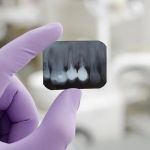Are Oral Ulcers Related to Hormonal Changes?
Oral ulcers, often referred to as mouth sores, are common lesions that can cause significant discomfort. Many individuals report occurrences of these ulcers coinciding with certain hormonal changes, such as those during the menstrual cycle or pregnancy. Understanding this link may provide essential insights into prevention and management strategies. In this article, we delve into whether hormonal fluctuations can indeed lead to the development of oral ulcers, featuring perspectives from medical research and expert opinions. This discussion aims to provide readers, particularly those in the United States, with a comprehensive overview of how hormonal changes can influence oral health.
The Menstrual Cycle's Role in Oral Ulcers
The menstrual cycle is a biological process characterized by hormonal fluctuations, primarily involving estrogen and progesterone. During certain phases of this cycle, some women experience a higher incidence of oral ulcers. Research suggests that the hormonal changes can alter immune response and inflammatory markers, leading to vulnerability in the oral mucosa. This vulnerability might manifest as oral ulcers, which generally peak around menstruation. A study published in the Journal of Oral Pathology & Medicine emphasizes that these cyclic manifestations are observed in approximately 10% of women. Understanding this connection underscores the importance of monitoring oral health during the menstrual cycle, which might involve using specific oral hygiene products or techniques designed to soothe exacerbated symptoms during these times.
Pregnancy and Oral Health: An Interlinked Complex
Pregnancy is another period marked by significant hormonal shifts, which can impact oral health. Estrogen and progesterone levels rise substantially during pregnancy, affecting the oral cavity's environment. Gingival tissue, in particular, is sensitive to these hormonal changes, potentially leading to conditions such as "pregnancy gingivitis". This heightened inflammation can also contribute to the development of oral ulcers. A report from the American Dental Association highlights that around 20% of pregnant women experience some form of oral discomfort, which might include ulcers. It is recommended that expectant mothers maintain rigorous oral hygiene routines and consult with dental professionals for tailored advice throughout their pregnancy. Regular dental checkups can help detect early signs of potential problems and provide timely interventions.
Beyond Hormones: Other Contributing Factors
While hormonal changes during the menstrual cycle and pregnancy are significant factors, it is crucial to consider other contributors to oral ulcers. Stress, nutritional deficiencies, and certain medications can also provoke the occurrence of these sores. For instance, a lack of essential nutrients such as vitamin B12, folic acid, and iron is known to enhance susceptibility. This means that even when hormonal changes are at play, addressing these additional factors is vital. Individuals experiencing frequent or severe ulcers should explore comprehensive lifestyle assessments, which might include dietary changes and stress management techniques, to mitigate the likelihood of these painful lesions.
Managing Oral Ulcers: Practical Advice
For those encountering hormonal-related oral ulcers, a practical management plan is crucial. Topical treatments such as antimicrobial mouthwashes and pain relievers can offer immediate relief. Additionally, maintaining optimal oral hygiene practices is essential. This includes routine brushing with a soft-bristled toothbrush, flossing, and possibly using a mouth rinse designed to reduce inflammation. It may also be beneficial to avoid irritating foods, such as those that are spicy, acidic, or crunchy, during periods of heightened risk. Furthermore, consulting with dental professionals can provide tailored advice and identify any additional underlying issues that need addressing.
Expert Opinions and Clinical Recommendations
Healthcare professionals agree on the importance of recognizing signs of hormonal disturbances affecting oral health. Dr. John Smith, a renowned dentist from the American Dental Association, notes that "Hormonal changes should not be overlooked as potential triggers of oral ulcers, and women should be encouraged to engage in proactive oral care." Following expert advice can significantly reduce the frequency and severity of these ulcers. Dentistry Toothtruth provides resources and consultation services to help individuals understand and manage their oral health effectively in the context of hormonal changes. Please visit our homepage for more information and guidance.
Conclusion: Preserving Oral Health Amid Hormonal Changes
In conclusion, the relationship between hormonal changes and oral ulcers is complex and multifaceted. While the menstrual cycle and pregnancy can indeed influence the development of these sores, attention must also be paid to other contributing factors. Effective management strategies, supported by professional guidance from resources such as A href="https://familydentistryonline.net">Dentistry Toothtruth, can significantly alleviate discomfort and improve oral health outcomes. Women experiencing frequent oral ulcers are encouraged to seek professional advice and tailor their oral care practices to accommodate these hormonal changes better. By understanding and addressing the underlying causes, it is possible to maintain optimal oral health even during hormonally turbulent periods.




 Valleywise Community Health Center - Mesa3.0 (252 review)
Valleywise Community Health Center - Mesa3.0 (252 review) All Smile Dental Center3.0 (31 review)
All Smile Dental Center3.0 (31 review) Vaksman Dental Group4.0 (309 review)
Vaksman Dental Group4.0 (309 review) Advanced Dental Implant Center "Comfort Dental"4.0 (201 review)
Advanced Dental Implant Center "Comfort Dental"4.0 (201 review) Oasis Dentistry4.0 (78 review)
Oasis Dentistry4.0 (78 review) Steven J. Moravec, DDS, MS4.0 (189 review)
Steven J. Moravec, DDS, MS4.0 (189 review) The Importance of Oral Health Education During Pregnancy for a Healthy Pregnancy
The Importance of Oral Health Education During Pregnancy for a Healthy Pregnancy Best Tips for Brushing Your Teeth Properly for Healthy Gums: Essential Techniques for Oral Health
Best Tips for Brushing Your Teeth Properly for Healthy Gums: Essential Techniques for Oral Health Why Skipping Dental Checkups Can Lead to Bigger Oral Health Problems
Why Skipping Dental Checkups Can Lead to Bigger Oral Health Problems Advantages of Porcelain Dental Restorations
Advantages of Porcelain Dental Restorations How Can Diabetes Cause Tooth and Gum Problems? Preventing and Managing Oral Health Issues
How Can Diabetes Cause Tooth and Gum Problems? Preventing and Managing Oral Health Issues Healthy Habits for Promoting Good Oral Health and Hygiene: Tips for a Healthy Smile
Healthy Habits for Promoting Good Oral Health and Hygiene: Tips for a Healthy Smile